Prince Charles accepted €1m cash in suitcase from Qatari sheikh
The payment was one of three lots of cash, totalling €3m, which Prince Charles personally received from Sheikh Hamad bin Jassim bin Jaber Al Thani, former prime minister of Qatar.
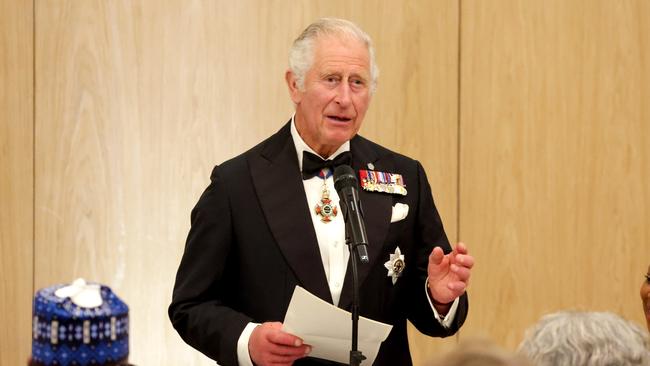
Prince Charles, The Prince of Wales, accepted a suitcase containing €1m ($1.52m) in cash from a controversial Qatari politician.
It was one of three lots of cash, totalling €3m ($4.5m), which Prince Charles personally received from Sheikh Hamad bin Jassim bin Jaber Al Thani, the former prime minister of Qatar who is nicknamed “HBJ”, between 2011 and 2015.
On one occasion, Sheikh Hamad, 62, presented the prince with €1m, which was reportedly stuffed into carrier bags from Fortnum & Mason, the luxury department store that has a royal charter to provide the prince’s groceries and tea.
On another, Charles, 73, accepted a holdall bag containing €1m during a one-on-one meeting at Clarence House in 2015.
Last night Clarence House said the money was “passed immediately to one of the prince’s charities who carried out the appropriate governance and assured us that all the correct processes were followed”.
After the heir to the throne accepted the small suitcase, it was given to two advisers in the royal household who hand-counted the money. It was said to be in the form of €500 notes – a denomination dubbed the “bin Laden” because of its link to terrorist financing, and which has since been discontinued.
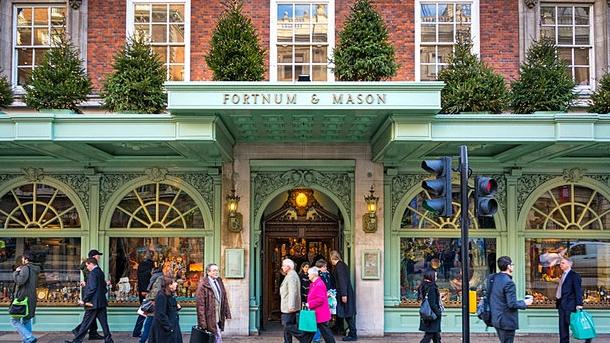
Palace aides then asked Coutts to collect the cash. The private bank, which is headquartered in the Strand in central London, and has served the royal family for centuries, is understood to have retrieved the suitcase from Charles’s London residence.
Each payment was deposited into the accounts of the Prince of Wales’s Charitable Fund, a low-profile grant-making entity which bankrolls the prince’s pet projects and his country estate in Scotland. There is no suggestion the payments were illegal.
The prince’s meetings with Sheikh Hamad do not appear in the Court Circular, the list of official engagements undertaken by working royals. The royal gift policy says members of the royal family are allowed to accept a “cheque” as a patron of, or on behalf of, a charity. It is silent on cash.
There are questions over a “cash-for-access” culture at Clarence House, with the Metropolitan Police and Charity Commission investigating fundraising practices, including the sale of honours. Last year The Sunday Times reported that Michael Fawcett, Charles’s closest confidant, fixed an honour for a Saudi billionaire. There is no evidence the sheikh did not intend the monies to go to the charity and Sheikh Hamad did not comment over the weekend.
However, the new revelations will raise serious questions about the personal judgment of the heir to the throne – including how much he knew, what he asked about the cash, and his impartiality in representing Britain on the world stage. Charles is regularly tasked with communicating the country’s foreign policy and position on issues such as human rights during official overseas visits. He visited Qatar repeatedly after accepting the cash, including during Sheikh Hamad’s premiership.
The cash also poses questions about the governance of Charles’s flagship charity. Trustees have a legal duty to protect a charity’s reputation. One of the trustees of the PWCF at the time said they had no knowledge of Sheikh Hamad’s gifts.
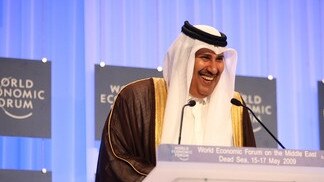
The PWCF was approached on Saturday (AEST). Sir Ian Cheshire, its chairman, stated: “At a few hours’ notice from The Sunday Times, we have checked into this event in the past, and confirm that the previous trustees of PWCF discussed the governance and donor relationship, (confirming that the donor was a legitimate and verified counterparty) and our auditors signed off on the donation after a specific inquiry during the audit. There was no failure of governance.”
Asked which donation he was referring to, Cheshire, 62, who is also chairman of Channel 4, stated: “The assurance of (the) 2015 donation has been verified from records. I believe the same assurance applied to earlier donations and look forward to confirming that in due course.”
He confirmed the latest donation was given in cash. “The donation was made in cash and that was the donor’s choice,” he said.
Sheikh Hamad served as Qatar’s prime minister and minister of foreign affairs between 2007 and 2013. During that time, he controlled the country’s $US250bn sovereign wealth fund and oversaw high-profile investments by the Gulf state in Harrods, the Shard and London’s Olympic Village.
He also built close ties with British royalty, with Qatar giving Charles a £147,000 ($259,836) horse named Dark Swan and contributing to the upkeep of one of his castles in Scotland.
Sheikh Hamad, a billionaire whose personal wealth was once estimated to be $US12bn ($17.2bn), continues to spend time in the UK, which he treats as his second home.
However, he has faced controversy, including claims that the state sponsored terrorism under his watch. He once said Qatar “maybe” financed the Al-Nusra Front, the Syrian branch of al-Qa’ida, while he was in office, but stated that he knew nothing about it.
Sheikh Hamad was also accused of licensing the alleged torture of a UK national, who reported being subjected to solitary confinement and psychological abuse, but succeeded in using diplomatic cover to avoid court action over the civil claims. Sheikh Hamad’s lawyers dismissed the allegations as “distortion, exaggeration and wholesale fabrication”.
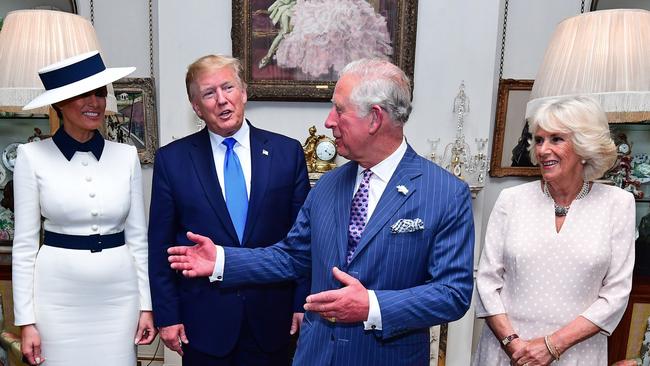
He was also involved in Qatar’s investment in Barclays at the height of the 2008 financial crisis which prompted regulatory and criminal investigations by the UK authorities over £364m in secret payments.
There is no suggestion Sheikh Hamad behaved improperly and he has since expressed regret that no one “(thanked) us for it”.
Charles typically meets foreign dignitaries in sessions attended by a private secretary who can take minutes, follow up on any sensitive matters and forward relevant information to government bodies such as the Foreign Office. But the future king met Sheikh Hamadwith no other aides present.
Sheikh Hamad’s lawyers declined to comment.
One of Charles’s former advisers who handled some of the cash said “everyone felt very uncomfortable about the situation”. The person added that the “only thing we could do was to count the money and make a mutual record of what we’d done. And then call the bank”.
Last night Sir Alistair Graham, the former chairman of the committee on standards in public life, said the disclosures were “truly shocking” and would be “inconceivable” to most people.
Graham, 79, said: “I wouldn’t make a distinction between a politician and a member of the royal family. If the Qatari government wants to make a gift to his foundation, then there are proper ways to do these things rather than handling large sums of cash.”
Several of the prince’s more senior household staff are alleged to have direct knowledge of, or involvement in, the cash. They include his principal private secretary, Clive Alderton, 55, who has been his chief aide since 2015 and became aware of the donations after his appointment.
Emily Cherrington, a former royal aide who is chief executive of the Prince’s Foundation, is alleged to have helped count one of the donations. Cherrington was appointed to her role last year to restore the charity’s credibility after the royal cash-for-honours scandal. According to one official, Sheikh Hamad’s team was at one point explicitly asked not to give the prince cash.
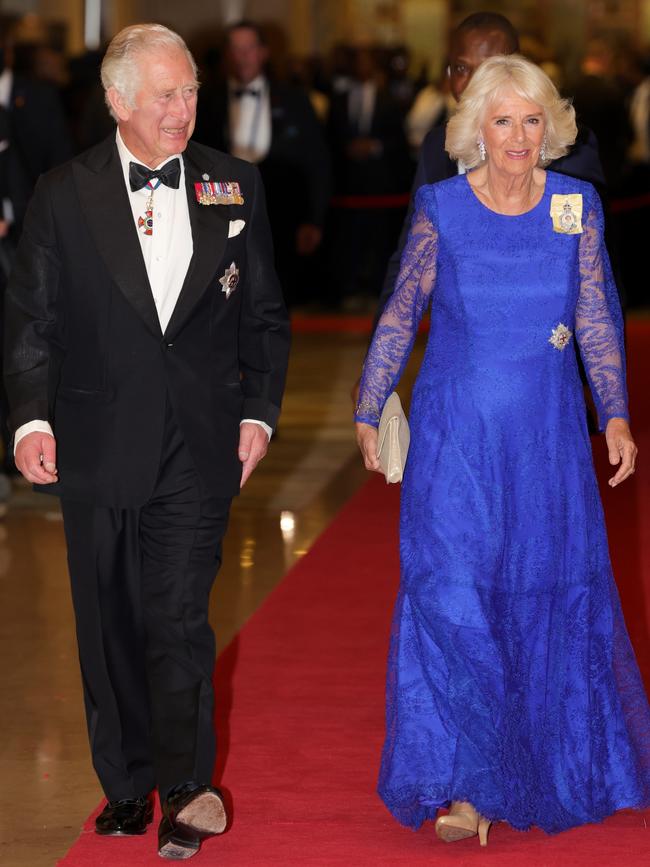
The disclosures will place many of Clarence House’s previous claims about Charles’s relationships with his charities under strain. In the past, the prince’s spokesman has claimed that all of his charities “operate independently of the prince himself in relation to all decisions around fundraising” and that their trustees “are responsible for all operational and governance duties”.
The PWCF itself says the prince is only consulted “from time to time”. There is no reference to the money in the accounts of the PWCF. There is no public reference to Sheikh Hamad being a donor to the charity, which is not obliged to disclose its supporters.
A Clarence House spokesman said: “We are disappointed not to have been given more time to look into this matter, which dates from a decade ago. In the few hours we have had on a Saturday, we have confirmed that Charitable donations were received from Sheikh Hamad bin Jassim, and these were passed immediately to one of the prince’s charities who carried out the appropriate governance and have assured us that all the correct processes were followed.”
Charles and Sheikh Hamad have a relationship going back several decades. In 2010, it emerged Charles had lobbied HBJ to shelve the £3bn redevelopment of London’s Chelsea Barracks – writing a letter in which he told the country’s then prime minister that the state-backed Qatari Diar’s proposed steel-and-glass design “made my heart sink”.
The prince then attached a scheme by an architect whose more traditional style he preferred.
Charles later met the emir of Qatar for tea at Clarence House where the topic was raised once again. Qatar subsequently pulled the plans, prompting the Candy brothers, who were overseeing the development, to launch a £81m lawsuit. In it, they accused Qatar of caving in to the prince’s demands.
The controversy came after the prince had decried a proposed National Gallery extension as a “monstrous carbuncle” in 1984.
A Coutts spokeswoman said: “Whilst we maintain utmost confidentiality in relation to the bank’s clients and cannot comment on specific cases, we have longstanding and robust policies and controls to assess the source, nature and purpose of large and unusual transactions. In particular, receipt of cash payments by the bank receive thorough review and oversight.”
The Sunday Times



To join the conversation, please log in. Don't have an account? Register
Join the conversation, you are commenting as Logout